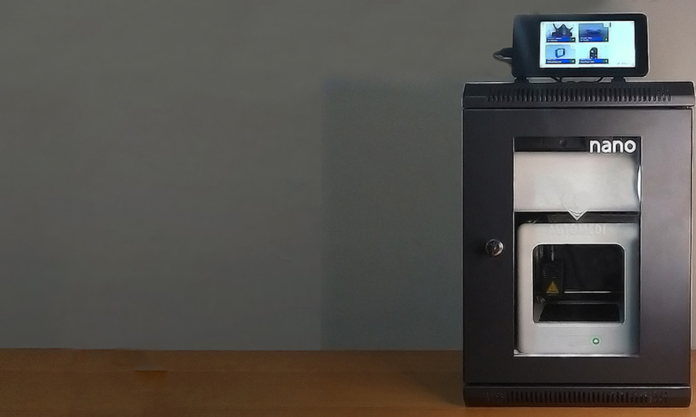Manchester technologists Axelisys launched a device they claim spells the end of health and social-care supply shortages.
Automedi is the first commercial smart 3D printing platform that manufactures products right at the point of care. Meaning no deliveries, no minimum order quantities and using new, fully recyclable thermoplastics, to take plastic waste out of the health plastics ecosystem. Reducing some of its 23 million tonne Carbon footprint.
Ethar Alali, Managing Director of Axelisys and inventor of Automedi, said: “2020 has been an incredibly challenging year for health and social care. COVID-19 caught the NHS’ supply unaware and ate away at its workforce. Supplies ran short and demand increased, leaving staff at increased risk of infection and stress. Especially People of Colour on the front line.”
Tackling COVID-19 saw communities rally together to fill exposed backlogs through donations and peer support. Engaging in civic action, the scale of which was not seen in peacetime.
Automedi works like a vending machine. Simply choose the items needed & equipment is 3D printed inside the filtered enclosure for what they claim, is a fraction of the cost, time, and climate impact of traditional manufacturing and delivery. One of its many advantages.
“Tools are available in minutes not days, there are no haulage emissions, lower energy usage, and lower storage space. Our thermoplastics can be fully recycled back into the same material that made the items and it takes an entire store of items and placing them in a unit that can make all the same products from just electricity and recyclable polymer”
The Automedi fleet is monitored through a cloud-based fleet management platform, supported by a management team. They respond to device calls, deliver consumables, fit hardware upgrades and recycle surplus material. All through one managed service subscription.
“Automedi subscriptions are a cross between mobile phone contracts and rentals. Helping introduce a circular bioplastics economy into the greater Manchester ecosystem and move health providers away from unrecycled plastics and towards the 2038, 2040 and 2050 net zero targets”
The company were awarded £49,000 by InnovateUK to develop the technology in June. The first prototype was ready 2 weeks later and by July, the devices were piloted in pharmacies in Greater Manchester. Yet, it was not plain sailing when it came to regulation.
“Because of COVID-19, we spent a lot of time trying to get appointments to understand how medical device regulations could apply.” Said Ethar “Most UK laws were passed 30 years ago and could never foresee the use of 3D printing. It took 7 weeks to get an initial conversation and 10 weeks before we got anything in writing. Out catalogues couldn’t have anything remotely medical in them until then.”
Now safe on a solid regulatory footing, the team aims to expand the device fleet across Greater Manchester’s Health and Social Care network as a testbed to a UK wide launch of their alternative supply chain, in early 2021. Helping to create 100 jobs over the next 3 years.







